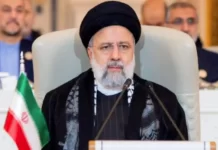Explained: What Can Invoke NATO’s Article 4 and 5 in the Ukraine War?
The ongoing war in Ukraine has raised concerns about the potential involvement of NATO due to the escalating tensions between Russia and Ukraine. NATO, an alliance of North American and European countries, has specific articles within its treaty that come into play in situations like these. In particular, Article 4 and Article 5 are relevant in determining NATO’s response and collective defense. Let’s take a closer look at these articles and how they apply to the Ukraine war.
What is Article 4?
Article 4 of the NATO treaty establishes a consultation mechanism among member countries when the territorial integrity, political independence, or security of any of the parties is threatened. In the context of the Ukraine war, Poland, a NATO member, invoked Article 4 by requesting a NATO meeting. This request serves as a call for allies to consult and discuss the security threat at hand, allowing them more time to assess the situation and decide on a course of action.
The purpose of Article 4 is to facilitate information exchange, discussion, and decision-making among NATO members, helping to prevent military conflicts and promote diplomatic solutions. The North Atlantic Council, NATO’s political decision-making body, serves as the primary forum for these consultations.
What is Article 5?
Article 5 is often referred to as the cornerstone of the NATO treaty. It states that an armed attack against one member of the alliance is considered an attack against all members. This article serves as a collective defense clause, wherein NATO resources can be used to defend any member nation under attack. It emphasizes the principle of solidarity among NATO allies, ensuring that they stand united against potential adversaries.
In the case of the Ukraine war, Article 5 has not been invoked as Ukraine is not a NATO member. However, if a Russian attack were to spread to one of Ukraine’s neighboring NATO member countries, Article 5 could be triggered. This would prompt the United States and other NATO members to take action in defense of the attacked nation, potentially including military intervention.
US Authorities on Article 5
The United States, as the largest and most powerful NATO member, plays a crucial role in upholding Article 5. US authorities have repeatedly affirmed their commitment to defending NATO territory and honoring the collective defense clause. US Secretary of State Antony Blinken stated that any aggression on NATO territory would be met with action from the United States and its allies.
While President Joe Biden has expressed the United States’ intention to avoid direct military conflict with Russia, he has affirmed the country’s commitment to honoring Article 5. The US administration is prepared to defend every inch of NATO territory and support its allies in the face of aggression.
What Can Invoke Article 5 in the Ukraine War?
As mentioned earlier, Article 5 has not been activated in response to Russia’s invasion of Ukraine since Ukraine is not a NATO member. However, the possibility of invoking Article 5 remains a concern, given the proximity of NATO member countries to the conflict.
If a Russian attack were to extend to one of Ukraine’s neighboring NATO member countries, such as Poland, the collective defense principle of Article 5 could come into effect. This would trigger a direct involvement of the United States and other NATO members, potentially leading to a military response.
The actions of Russia in the Ukraine war have heightened the risk of escalation and the involvement of additional countries. While the implementation of Article 5 is a significant decision that requires careful consideration, its invocation could drastically impact the course of the conflict.
In conclusion, Article 4 and Article 5 of the NATO treaty provide a framework for consultation and collective defense in response to threats against NATO member countries. While Article 5 has not been activated in the Ukraine war thus far, its potential invocation remains a topic of concern and speculation as the situation continues to evolve.


















